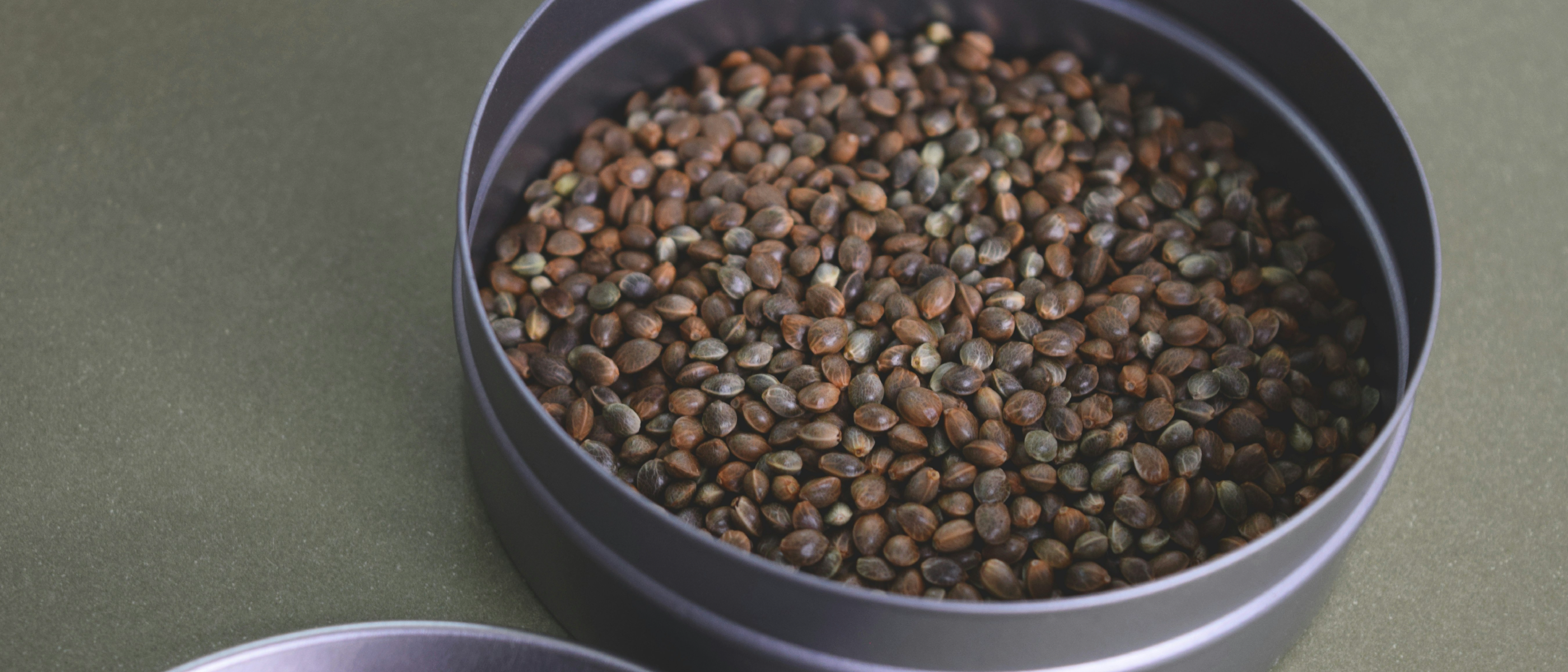What Happens to Your Body When You Eat Hemp Seeds Regularly
Posted on June 11, 2025 • 4 min read • 760 wordsDiscover the transformative effects of regular hemp seed consumption on your body, from heart health to immune support, backed by recent nutritional research.

Hemp seeds, the small, nutty-tasting seeds of the Cannabis sativa plant, have been gaining traction in health circles for years. Unlike their psychoactive cousin marijuana, hemp seeds contain negligible THC (tetrahydrocannabinol), making them a safe and nutritious addition to your diet. But what exactly happens when you start eating them regularly? Let’s explore the science-backed changes your body might experience.
1. Your Heart Health Gets a Boost
One of the most notable benefits of hemp seeds lies in their unique fatty acid profile. A 2023 review on edible seeds highlighted that hemp seeds are rich in polyunsaturated fats, particularly omega-3 (α-linolenic acid) and omega-6 (linoleic acid) in an optimal 1:3 ratio—considered ideal for reducing inflammation and supporting cardiovascular health [1] .
Another 2022 study on hempseed proteins and peptides noted that these fats may help lower LDL (“bad”) cholesterol levels while increasing HDL (“good”) cholesterol, a key factor in reducing heart disease risk [2] . Over time, this balance could translate to a healthier blood lipid profile and reduced strain on your heart.
2. Your Digestive System Thrives
Though hemp seeds are often praised for their fats and proteins, their fiber content (while not as high as other seeds) still plays a role in gut health. A 2021 comprehensive review on specialty seeds mentioned that hemp seeds contain both soluble and insoluble fiber, which can promote regular bowel movements and feed beneficial gut bacteria [3] .
Regular consumption may also reduce the risk of digestive disorders like constipation, as the fiber helps bulk up stool and maintain gut motility. For those with sensitive digestive systems, the gentle fiber content makes hemp seeds a less irritating option compared to some other high-fiber foods.
3. Your Muscles and Bones Get Stronger
Hemp seeds are a complete protein source, meaning they provide all nine essential amino acids your body can’t produce on its own. A 2022 study on hempseed applications in food formulations confirmed that their protein content (around 33.9g per 100g) is comparable to animal-based proteins, making them an excellent choice for vegetarians and vegans [4] .
Additionally, hemp seeds are rich in minerals like magnesium, zinc, and iron. Magnesium supports muscle function and bone density, while zinc aids in tissue repair and immune function. Over time, incorporating these seeds into your diet could help maintain muscle mass, especially as you age, and support bone health to prevent conditions like osteoporosis.
4. Your Inflammation and Immunity Improve
Chronic inflammation is a root cause of many diseases, from arthritis to heart disease. Hemp seeds contain gamma-linolenic acid (GLA), an omega-6 fatty acid with anti-inflammatory properties. A 2023 review on cannabis-infused foods noted that GLA can help reduce inflammation by converting to prostaglandins, which regulate immune responses [5] .
Moreover, the antioxidants in hemp seeds—such as vitamin E and phenolic compounds—help neutralize free radicals, reducing oxidative stress and supporting a stronger immune system. This means you might find yourself getting sick less often or recovering faster from minor illnesses.
Hemp Seed Nutrition: Key Components
The nutritional profile of hemp seeds makes them a powerhouse for daily health. Here’s a breakdown of their key nutrients per 100g, along with adult daily recommended intakes (DRIs):
| Nutrient | Amount per 100g | Daily Recommended Intake (Adults) |
|---|---|---|
| Protein | 33.9g | 46-56g (depending on gender) |
| Total Fat | 42.2g | 44-78g (20-35% of total calories) |
| Carbohydrates | 3.5g | 130g (minimum for brain function) |
| Calories | 542 kcal | 1,600-3,000 kcal (varies by activity) |
Note: The fiber content listed (0g) may be an oversight; most sources indicate hemp seeds contain 8-10g of fiber per 100g, which supports digestive health.
Tips for Enjoying Hemp Seeds
Incorporating hemp seeds into your diet is easy and versatile:
- Smoothies: Add a tablespoon to your morning smoothie for a protein boost.
- Yogurt or Oatmeal: Sprinkle over yogurt, oatmeal, or chia pudding for crunch.
- Baking: Mix into bread, muffins, or energy bars for extra nutrition.
- Salads: Use as a topping for salads or grain bowls.
For a quick recipe, try “Hemp Seed Energy Bites”: blend dates, almond butter, cocoa powder, and hemp seeds, then roll into balls and chill. They make a perfect on-the-go snack!
Conclusion
Regularly eating hemp seeds can trigger a cascade of positive changes in your body, from supporting heart health and digestion to boosting muscle strength and immune function. Their balanced nutrient profile—rich in complete proteins, healthy fats, and essential minerals—makes them a valuable addition to any diet. As with any food, moderation is key, but when included mindfully, hemp seeds can be a delicious and powerful tool for enhancing your overall well-being.
Sources
-
Kakkar S, Tandon R, Tandon N. The rising status of edible seeds in lifestyle related diseases: A review. Food Chemistry 382:134220.(2023). doi:10.1016/j.foodchem.2022.134220 ↩︎
-
Aguchem RN, Okagu IU, Okagu OD. A review on the techno-functional, biological, and health-promoting properties of hempseed-derived proteins and peptides. Journal of Food Biochemistry 46:e14127.(2022). doi:10.1111/jfbc.14127 ↩︎
-
Alasalvar C, Chang SK, Bolling B. Specialty seeds: Nutrients, bioactives, bioavailability, and health benefits: A comprehensive review. Comprehensive Reviews in Food Science and Food Safety 20:12730.(2021). doi:10.1111/1541-4337.12730 ↩︎
-
Xu J, Bai M, Song H. Hemp (Cannabis sativa subsp. sativa) Chemical Composition and the Application of Hempseeds in Food Formulations. Food and Bioprocess Technology 15:1013.(2022). doi:10.1007/s11130-022-01013-x ↩︎
-
Fordjour E, Manful CF, Khalsamehta TS. Cannabis-infused foods: Phytonutrients, health, and safe product innovations. Comprehensive Reviews in Food Science and Food Safety 23:70021.(2024). doi:10.1111/1541-4337.70021 ↩︎